IRDR 12th Annual Conference: Climate change – Disaster Risk, Loss and Damage, or Action
16 June 2022, 10:00 am–5:15 pm
The IRDR 12th Annual Conference 2022 will lead a day of thought-provoking talks and discussions on how global climate change is acting as a threat multiplier, accelerating and intensifying hazard risks, and how we can navigate the future post the 26th UN Climate Change Conference of the Parties (COP26) meeting in Glasgow in addressing ‘Loss and Damage’, climate mitigation and adaptation.
This event is free.
Event Information
Open to
- All
Availability
- Yes
Cost
- Free
Organiser
-
Dr Mohammad Shamsudduha and Dr Sonja Ayeb-Karlsson – UCL Institute for Risk and Disaster Reduction
Location
-
Gustave Tuck Lecture Theatre and South Cloisters2nd floor, South Wing, UCLGower Street,LondonWC1E 6BTUnited Kingdom
Following a year that placed climate change at the forefront of discussions amongst academics, researchers, politicians, journalists and the public, our 12th Annual Conference will ask how we move forward after the COP26 and the latest Intergovernmental Panel on Climate Change (IPCC) Sixth Assessment Report.
This one-day, in-person event will provide thought-provoking talks, interactive discussions and networking opportunities on natural hazard risks and disasters, loss and damage, and climate adaptation and action. COP26 has recognised the critical issue of Loss and Damage in vulnerable nations particularly in the Global South but failed on the funding commitment. This forum will be an opportunity to discuss the future of global climate action (or inaction) and reduction (or increase) of carbon emission in the face of the current Ukraine War and geopolitical fallout.
The UCL Institute for Risk and Disaster Reduction (IRDR) welcomes researchers, students, practitioners, policymakers, the media, and the public to consider how far the recommendations from COP26 go and what the next steps can be. Our guest speakers will present a global perspective on the latest research and analysis, with a keynote and in conversation session from notable climate change commentators.
Programme
10:00–10:05 Introduction by Dr Sonja Ayeb-Karlsson and Dr Mohammad Shamsudduha
10:05–10:15 Welcome by Prof Peter Sammonds, Director, Institute for Risk and Disaster Reduction
10:15–11:30 Panel 1 – Scientific panel presenting climate change and disaster risks [Moderator: Dr Joanna Faure Walker]
11:30–12.:00 Tea break with refreshments
12:00–12:45 In Conversation with Dr Emily Wilkinson [Moderator: Dr Mohammad Shamsudduha; Interviewer: Mhari Gordon]
12:45–14:00 Lunch break*
14:00–15:00 Keynote: Vanessa Nakate [Moderator: Dr Lisa Guppy]
15.00–16:15 Panel 2 - Loss and Damage climate policy panel [Moderator: Dr Sonja Ayeb-Karlsson]
16:15–16:30 Short comfort break
16:30–17:00 Keynote: Lucy Easthope [Moderator: Prof Ilan Kelman]
17:00–17.15 Celebration of 12 years of UCL IRDR and Closing Remarks by Dr Rosanna Smith, Deputy Director, UCL IRDR
Drinks reception and IRDR PhD research showcase in the South Cloisters
Confirmed speakers
Panel 1 – Scientific panel presenting climate change and disaster risks
According to the Sixth Assessment Report of the Intergovernmental Panel on Climate Change (IPCC), human-induced climate change has caused widespread adverse impacts on ecosystems, people, settlements, and infrastructure resulting from observed increases in the frequency and intensity of climate and extreme weather events such as heatwave, powerful cyclone, heavy precipitation events leading to flood, drought, and wildfire. What can academics and practitioners do to educate people and better prepare vulnerable communities around the world to adapt to these intensified natural hazards and disaster risks? What role can research play in enabling socially inclusive and sustainable action to build resilience to climate change and natural hazards? The expert panellists in this session will be presenting their thoughts and case studies and will discuss with the audience.
- Professor Sue Grimmond, University of Reading
- Sue Grimmond is the Met Office Joint Chair and Professor of Urban Meteorology at University of Reading. She joined the Department of Meteorology, University of Reading in August 2013. Previously she was a Chair of Physical Geography and Professor at King’s College London, after being Assistant, Associate and Full Professor at Indiana University, Bloomington USA. She completed her undergraduate degree (BSc Hons) at the University of Otago, New Zealand, and graduate degrees (MSc and PhD) at The University of British Columbia. She is a past President of the International Association of Urban Climate (IAUC) and past Lead Expert for the WMO on Urban and Building Climatology.
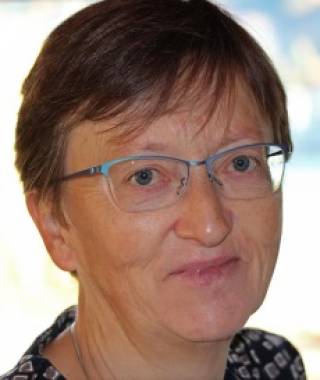
Prof Grimmond is the first female recipient of the Royal Meteorological Society’s prestigious Symons Gold Medal in cognition of her research excellence in understanding urban climates, her outstanding contribution to improving the environment in cities around the world, and the selfless fostering of young researchers.
- Jonathan Day, Environment Agency
- Jonathan Day is responsible for assessing current and future flood risk in England and advising on some of the emerging approaches to managing it, including working with partners to improve surface water management and mainstreaming property flood resilience. He has worked for the Environment Agency for the last 15 years in a variety of roles including investment strategy and portfolio and programme leadership. Prior to that he worked as a chartered accountant carrying out finance and strategy roles in Local Government and the Audit Commission.
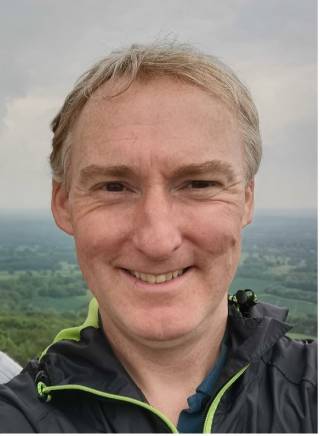
- Professor Paul Bates, University of Bristol
- Paul Bates is Professor of Hydrology at the University of Bristol where he specialises in the science of flooding. He develops new numerical solutions to the Shallow Water equations and combines these with satellite and airborne data to advance our fundamental understanding of flood dynamics and reduce threats to life and economic losses worldwide. His work is used by multiple researchers, NGOs, multi-national companies and insurers to manage flood hazard and risk.
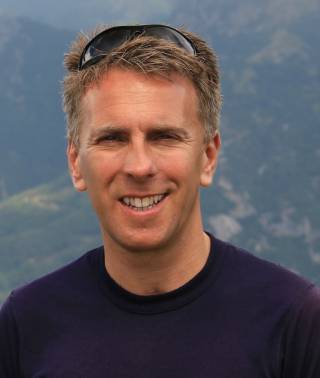
Previously, he was Director of the Cabot Institute and Head of the School of Geographical Sciences at Bristol. He is a Fellow of the Royal Society and the American Geophysical Union, a double winner of the Lloyd's of London Science of Risk prize and in 2019 was made a Commander of the British Empire for services to flood risk management.
- Dr Freya Garry, Met Office UK
- Freya Garry is a Scientist in the Met Office UK Climate Resilience team. As a member of this team, Freya studies projections of future UK climate change to understand how climate change will affect UK sectors such as agriculture. She analyses projections of various multiple hazards that will affect people in the UK over the coming century and develops risk projections for different sectors due to multiple hazards.
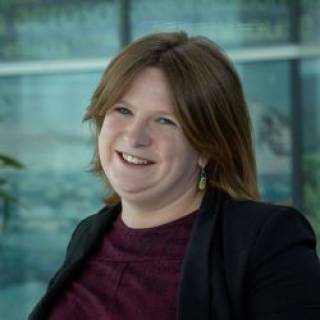
Freya is passionate about promoting diversity and inclusion across science and is involved with diversity initiatives in Exeter. Freya co-founded the Women in Climate network at the University of Exeter and has helped run some joint events at the Met Office. Freya is also involved in the PRISM Exeter network and is a keen climate science communicator, for example, Freya participated in the Climate Stories project, using various art forms to communicate climate science. Freya is a STEM Ambassador at the Met Office, participating in outreach activities to encourage students to study STEM subjects.
In conversation
- Dr Emily Wilkinson, ODI Global Risks and Resilience Programme
- Emily is a Senior Research Fellow in the ODI Global Risks and Resilience Programme, leading a team working on ‘Advancing resilience ambition and financing’. She has 25 years’ experience as a researcher, analyst, journalist, lecturer and adviser to government, providing critical analysis and leading debate on resilience, sustainable development, climate change adaptation and risk governance. Here current work focuses on sustaining development in Small-Island Developing States (SIDS) in the context of climate change.
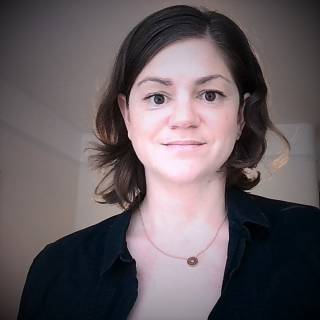
Emily is Chief Scientific Adviser to the Climate Resilience Agency for Dominica (CREAD), supporting the nation’s ambition to become the first climate resilient country in the world; and is Co-Director of the Caribbean Resilience and Recovery Knowledge Network (CRRKN). She holds a Knowledge Exchange Fellowship with the UK’s Natural Environment Research Council and has led major research and learning programmes for the Climate and Development Knowledge Network (CDKN) and the Building Resilience and Adaptation to Climate Extremes and Disasters Programme (BRACED). Emily holds a PhD in Human Geography from University College London.
- Mhari Gordon, UCL Institute for Risk and Disaster Reduction
- Mhari Gordon is a PhD student in the UCL Institute for Risk and Disaster Reduction. Her research focuses on the interface between hazard risk and displaced populations and explores the refugee-hazard relationship in the context of the Rohingya population in Cox’s Bazar District, Bangladesh.
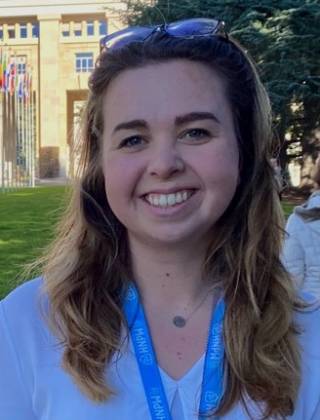
Keynote speakers
- Vanessa Nakate, Climate Justice Activist
- Vanessa Nakate, is a climate justice activist from Uganda and founder of the Africa-based Rise Up Movement. She began striking for the climate in her home town of Kampala in January 2019, after witnessing droughts and flooding devastating communities in Uganda. She now campaigns internationally to highlight the impacts of climate change already playing out in Africa, as well as promoting key climate solutions such as educating girls. In 2020, Vanessa was named a UN Young Leader for the Sustainable Development Goals, as well as being listed one of the BBC's 100 Women of the year and the 100 most influential young Africans.
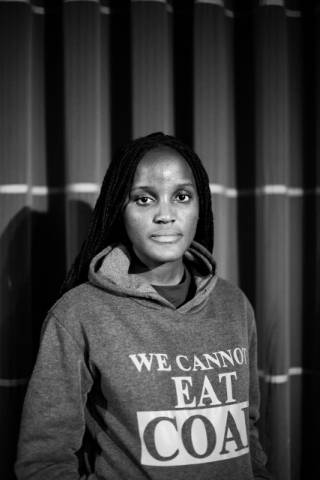
Image credit: Alice Aedy
- Professor Lucy Easthope
- Professor Lucy Easthope is one of the country’s leading authorities on recovering from disaster. For over two decades she has challenged others to think differently about what comes next, after tragic events. She is a passionate and thought-provoking voice in an area that few know about: emergency planning. However in the time of the Covid-19 pandemic, her work has become decidedly more mainstream. Alongside advising both the Prime Minister’s Office and many other government departments and charities during the pandemic, she has found time to reflect on a life in disaster.
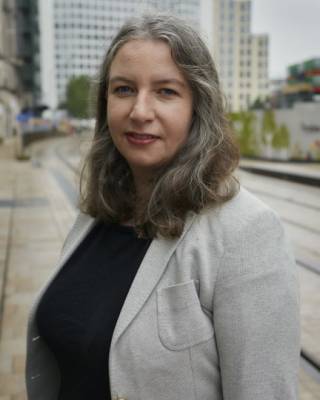
She is known globally for her work and holds research positions in the UK and New Zealand. She is a Professor in Practice of Risk and Hazard at the University of Durham and Fellow in Mass Fatalities and Pandemics at the Centre for Death and Society, University of Bath.
Her book When The Dust Settles Stories of Love, Loss and Hope from an Expert in Disaster is released in March 2022
Twitter: @lucygobag
Image: Caitlin Chescoe
Panel 2 – Loss and Damage climate policy panel
Over the past decade, we have seen a growing recognition of climate-induced losses and damages – such as the destruction of homes or buildings after a flood. The Loss and Damage term is widely used within the UN Framework Convention on Climate Change (UNFCCC) policy processes and tends to refer to the harms caused by anthropogenic (human-generated) climate change. More recently, critical voices have also pointed out that more attention must be drawn to the non-economic losses and damages that cannot be measured in monetary terms. These include, for example, loss of life, health and wellbeing, livelihoods, territory, cultural heritage and traditions, indigenous knowledge and biodiversity.
The appropriate response to loss and damage has been widely debated since its conceptual birth. For some, establishing liability and compensation for their ongoing losses and damages has been a long-standing goal. Strong voices within the debates include those of the Alliance of Small Island States (AOSIS) and the Least Developed Countries Group. However, a long line of rich countries resist such responsibility. As a result of this, perhaps, the current UNFCCC loss and damage work, the Warsaw International Mechanism for Loss and Damage, mainly focuses on research and dialogue rather than liability or compensation.
Why has Loss and Damage as a policy concept generated such strong feelings and opinions? And by whom? And for what actual reasons? These questions will be debated today by our expert panel and perhaps most importantly, where do we go from here?
Want to know more about the connections between mental health and non-economic loss and damage? Read Dr Sonja Ayeb-Karlsson’s article based on her research in Bangladesh, published by the Conversation.
- Professor Emily Boyd, Lund University
- Emily Boyd is Professor in sustainability studies and a leading social scientist with a specialist focus on environment and climate change. Her unique focus has been on the interdisciplinary nexus of poverty, livelihoods and resilience in relation to global environmental change, focusing on issues pertaining to cities, sustainable land use, water and deforestation in Africa, Latin America, South-East Asia and Europe. Her work has been published across the social and sustainability sciences with notable publications on resilience, adaptation and the politics and practice of community participation in the new carbon economy.
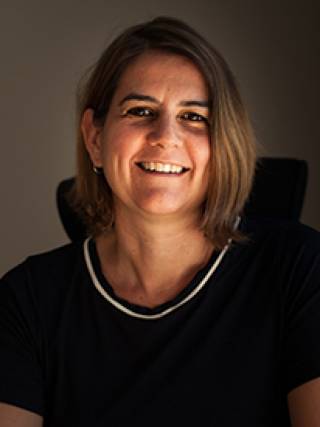
Her research areas include sustainability science, climate adaptation and resilience, development, and governance.
- Professor Lisa Vanhala, University College London
- Lisa is a Professor in Political Science. She holds a DPhil and MPhil in Politics from University of Oxford. She spent her undergraduate years at McGill University and Sciences Po Paris. Prior to joining UCL Lisa held positions at the Centre for Socio-Legal Studies in Oxford and at the Centre for the Study of Human Rights at LSE. She has held visiting professorships at the École des Hautes Etudes en Sciences Sociales (EHESS) in Paris; the Center for the Study of Law and Society at the University of California, Berkeley and the European University Institute in Florence. She has held major grants, including a British Academy Postdoctoral Fellowship, an ESRC Future Research Leaders Fellowship and a European Research Council Starting Grant.
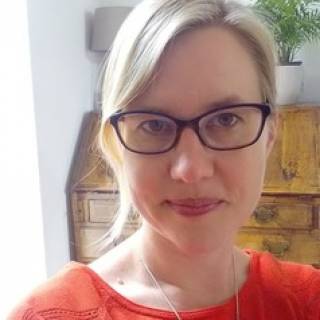
Professor Vanhala is interested in the politics of climate change and the socio-legal study of human rights and equality issues. Her current, ERC-funded project, the Politics and Governance of Climate Change Loss and Damage (CCLAD), explores attempts to govern the impacts of climate change we will not be able to adapt to at the global and national level. Relying on a political ethnographic approach the project explores the role of norms, identities and the micro-level, every day dynamics of global environmental governance.
- Dr Adelle Thomas, Climate Analytics
- Adelle is Senior Caribbean Research Associate for the IMPACT project and part of the Science team. Her particular focus is on aspects of social vulnerability, adaptation strategies and loss and damage.
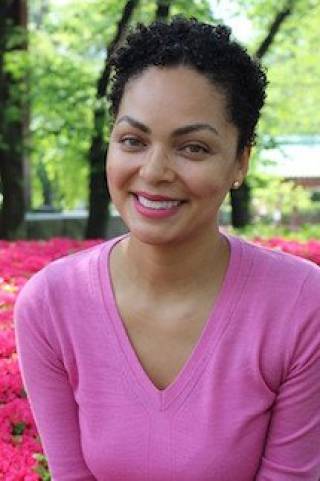
Since November 2019, Adelle is also Director of the newly established Climate Change Adaptation and Resilience Research Centre at the University of the Bahamas. Prior to joining Climate Analytics, Adelle was an Assistant Professor at University of The Bahamas and Director of the Climate Change Initiative there. As a human-environment geographer, she is interested in the particular vulnerabilities and adaptation potentials for small island developing states. Adelle has worked for several years on intersections between climate change adaptation, environmental protection and development. Her research has centered on varying aspects of adaptation and social vulnerability including examining the potential of insurance as an adaptation strategy; knowledge, awareness and perception of the public about climate change; assessing opportunities, barriers and limits to adaptation; and challenges facing small islands in managing loss and damage.
Adelle is an lead author in the IPCC Sixth Assessment Report and the Special Report on 1.5°C, and has authored a variety of academic publications and has also provided scientific services to a number of organisations including the Global Environment Facility, Inter-American Development Bank, International Maritime Organization and national institutions in the USA and Bahamas. Adelle obtained a PhD in Geography from Rutgers University (2012) and a BS in Civil Engineering from University of Minnesota and Macalester College (2005).
- Timmons Roberts, Brown University and the Climate Social Science Network
- Timmons Roberts is Ittleson Professor of Environmental Studies and Sociology at Brown University and the Executive Director of the Climate Social Science Network. He has taught in and directed environmental science and policy programs at Brown, the College of William and Mary, and Tulane University. Timmons was a James Martin 21st Century Professor at Oxford University's Environmental Change Institute in 2006-2007 and Non-Resident Senior Fellow at the Brookings Institution from 2012-2020. He completed his B.A. in Biology from Kenyon College and his Ph.D. at The Johns Hopkins University in the Sociology Department's Program in Comparative International Development.
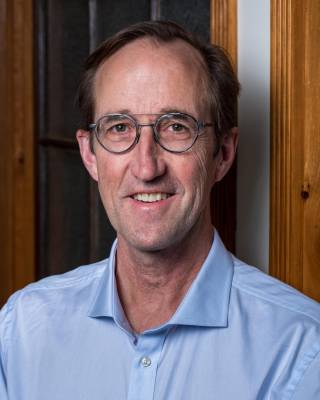
Timmons' research focuses on the politics of climate change. Co-author and editor of fourteen books and edited volumes, and of over one hundred articles and book chapters, Timmons' current research focuses on social drivers of action and inaction on climate change. After fifteen years studying tensions between the global North and South at the United Nations climate negotiations, he has expanded his research into what explains the failure to address climate change in the United States. Current studies examine lobbying in state legislatures and influence over agencies and commissions. Timmons' approach to research is to learn about social change by participating with leading engaged actors in the real world.
Conveners and moderators
All conveners and moderators are staff from the Institute for Risk and Disaster Reduction (IRDR). Find out more about our staff and PhD students on our website.
- Dr Sonja Ayeb-Karlsson
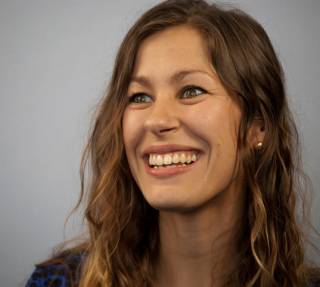
Dr Sonja Ayeb-Karlsson's (IRDR) research is broad and interdisciplinary with a particular focus on the interconnections between intersectionality, policy and climate change, and their overlaps with human (im)mobility and migration, or health and mental wellbeing. Her work combines primary and secondary data and includes quantitative and qualitative methods. She is also interested in anthropological narrative approaches that support visual alternative ways to communicate research findings.
At the moment, she is particularly interested in furthering our understanding of psychologically and legally ‘trapped’ populations, gender-based violence and policy protection (or lack of protection), the mental health impacts of humanitarian disasters, the COVID-19 pandemic or specific legal systems (such as the family courts) or policy tools (such as the Human Rights Act, the Istanbul Convention, the Convention on the Rights of the Child, and Family Law), and non-economic losses and damages in the context of the UNFCCC climate negotiations.
- Dr Mohammad Shamsudduha (Shams)
- Mohammad Shamsudduha is Associate Professor in Humanitarian Science in the IRDR. He is a geoscientist by academic background. His research is centred around earth’s water resources, environment, and people. He studies and trains students on hydro-meteorological hazards, water risks and resilience to global change using geospatial big data, earth observation satellites, remote sensing, geographic information system and machine learning tools. For over a decade, he worked in South Asia and Sub-Saharan Africa on the promotion of sustainable and equitable access to freshwater, and how water can help nations build resilience to changes in land-use and climate. His current research seeks to bridge the humanitarian-development divide as he argues that protracted humanitarian crises and increasing human displacement, particularly in the Global South, cannot be solved with short-term humanitarian interventions but with sustained development solutions, addressing root causes and social change. Shams works with academic researchers, practitioners, donors, national and international agencies, non-government organisations, and private sector.
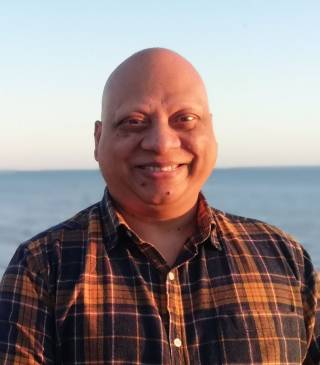
- Dr Joanna Faure Walker
- Joanna Faure Walker is Associate Professor in Risk and Disaster Reduction and the IRDR Director of Studies. Earthquake geology and seismic hazard are her main research themes. She studies faults in the Earth's continental crust to better understand the physical processes controlling earthquake locations, timing and generation. She is also interested in disaster resilience, especially topics such as risk perception, warning and shelter. She is motivated to tackle scientific problems that have potential to improve quality of life. Her teaching encompasses earthquakes and other natural hazards, disaster-related vulnerability and risk, and integrating science into decision-making. Joanna also has industry experience working for the catastrophe modelling firm RMS and academic consultancy practice for clients such as the World Bank.
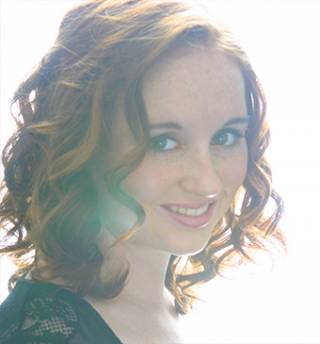
- Dr Lisa Guppy
- Lisa Guppy is Lecturer in Global Humanitarian Studies in the IRDR. She has worked across humanitarian, peace and development fields, primarily with United Nations organisations, in Asia, Africa, the Americas and the Middle East. Her roles have spanned local to global level and experience in humanitarian responses from the 2004 tsunami in Sri Lanka to drought in the Horn of Africa and ongoing complex emergency in Afghanistan. Most recently she has worked in the Asia Pacific Region, focusing on the environmental and climate dimensions of disasters, displacement and insecurity.
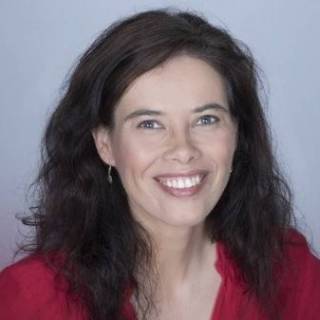
Lisa has a particular interest in protracted and chronic crises and the implementation of nexus solutions in fragile humanitarian settings. She also focuses on how more considered water and environmental management can improve resilience and peacebuilding in these places.
- Prof Ilan Kelman
- Ilan Kelman is Professor of Disasters and Health jointly appointed between IRDR and Institute for Global Health. His main research interests link disaster and health topics through (i) diplomacy, namely disaster diplomacy and health diplomacy; (ii) climate change; and (iii) island and polar locations. Bringing his research into the classroom means coordinating modules on 'Conflict, Humanitarianism, and Disaster Risk Reduction' and 'Climate change and health'. He lectures on migration, sustainability, gender, and disability, connecting practice with theories of vulnerability, resilience, disasters, islandness, Arcticness, and climate change's role. His recent consultancies have been for the international and national agencies as well as the private and non-profit sectors, and his work has appeared throughout the media around the world.
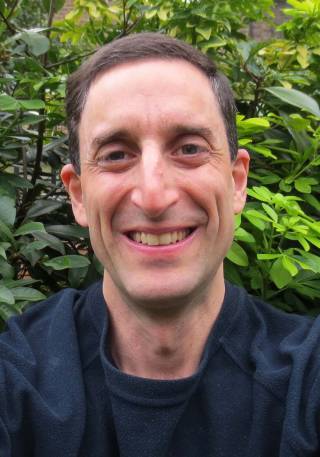
- Prof Peter Sammonds
- Peter Sammonds is the Director of the UCL Institute for Risk and Disaster Reduction. He works at the interface of natural and social sciences and his research and knowledge exchange is on natural hazard risks, disasters and recovery. He has worked on earthquake mechanics, volcanoes and ice physics in the Arctic, and on research council, British Academy and Royal Society-funded projects on Increasing Resilience to Environmental Hazards in Border Conflict Zones and Resilience Futures for the Rohingya Refugees. He has advised the UK research councils on the increasing resilience to natural hazards programme; been a member of EEFIT Earthquake Engineering Field Investigation teams, contributing to inter-disciplinary reports on disaster, taken up widely by government for policy advice; and been a Commissioner on the UCL–Lancet Commission on Migration and Health, 2017–18, whose report has been influential. He is currently the Gender and Intersectionality Ambassador for the UKRI network+ GRRIPP project led by the IRDR Centre for Gender and Disaster.
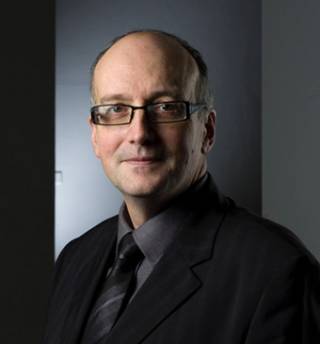
- Dr Rosanna Smith
- Rosanna Smith is Deputy Director of the UCL Institute for Risk and Disaster Reduction. She plays a key role in developing and implementing the strategy for the UCL Institute for Risk & Disaster Reduction (IRDR) and enabling it to achieve its objectives, operating at a high level to ensure new research, programmatic, and teaching and learning initiatives in the area of Risk and Disaster Reduction (RDR) are integrated across disciplines, faculties and departments at UCL.
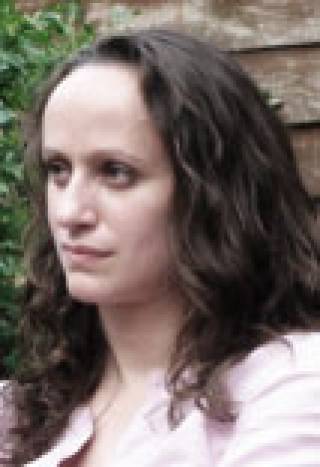
*Please note that lunch and refreshments are not provided at this event, but there are plenty of options locally, including on campus at UCL. You are invited to view the PhD research posters on display in the South Cloisters during the break.
 Close
Close

